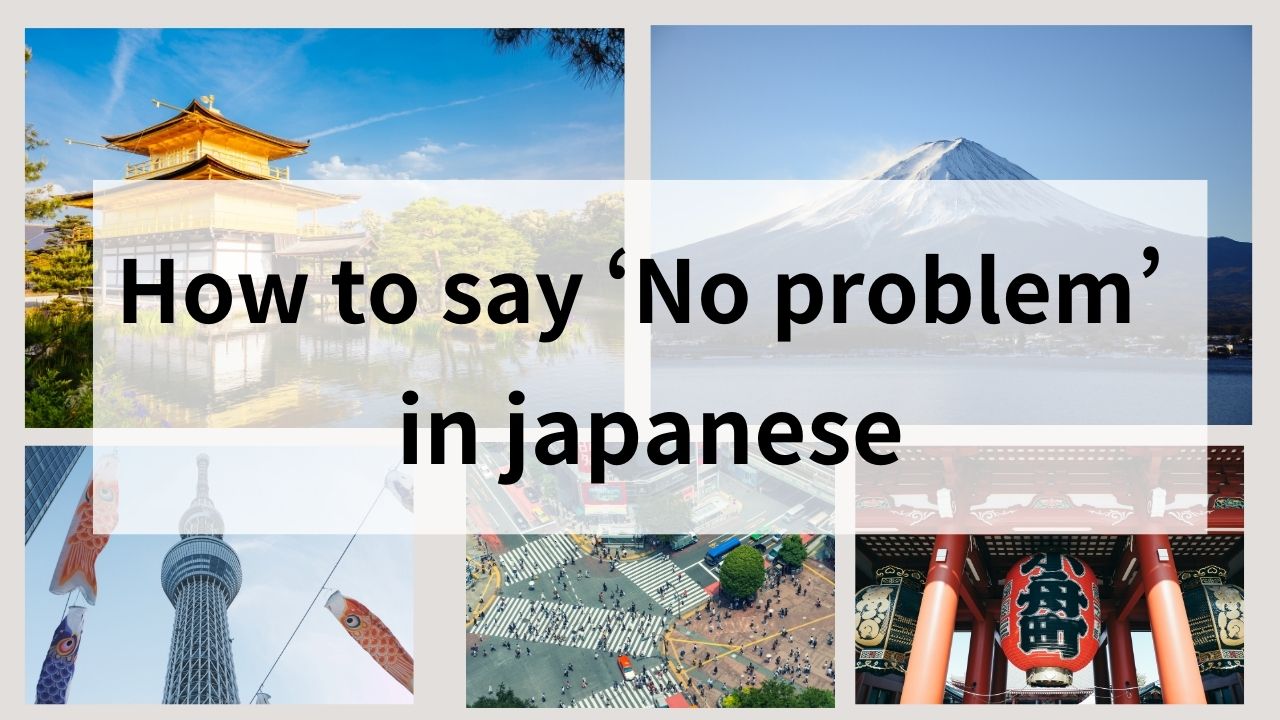Are you curious about how to say “no problem” in Japanese? The phrase “no problem” is commonly used in English-speaking cultures to express that something is not an issue or to assure someone that their request is easily manageable. In Japanese, there are several ways to convey a similar sentiment, each with its own nuances. This guide will explore the various expressions for “no problem” in Japanese, their cultural significance, and practical applications.
How Do You Say “No Problem” in Japanese?
The most straightforward way to say “no problem” in Japanese is 問題ない (mondai nai), which literally translates to “there is no problem.” This phrase is widely recognized and used in both casual and formal contexts.
The Japanese Phrase for “No Problem”: Mondai Nai (問題ない)
“Mondai nai” is a common expression used to reassure someone that their request or concern is manageable. For example:
- 「手伝ってもいいですか?」 (Tetsudatte mo ii desu ka?) – “Is it okay if I help?”
「問題ないです!」 (Mondai nai desu!) – “No problem!” - 「遅れても大丈夫ですか?」 (Okurete mo daijoubu desu ka?) – “Is it okay if I’m late?”
「問題ありません!」 (Mondai arimasen!) – “There is no problem!”
Alternative Expressions for “No Problem”
In addition to “mondai nai,” there are other phrases that convey a similar meaning:
- 大丈夫 (daijoubu): This term means “it’s okay” or “I’m fine,” and can be used to express that a situation is manageable.
- 気にしないで (ki ni shinaide): This phrase means “don’t worry about it,” and is often used to reassure someone that they need not be concerned.
- 問題ありません (mondai arimasen): A more formal way to say “there is no problem.” This phrase is often used in business or formal conversations.
These expressions can be chosen based on the context and the level of formality required in the conversation.
Cultural Significance of “No Problem” in Japanese
In Japanese culture, communication often emphasizes harmony and a non-confrontational approach. Expressions that convey reassurance, like “no problem,” play a crucial role in maintaining social harmony and ensuring that others feel comfortable and at ease.
Reassurance and Politeness
Using phrases like “mondai nai” or “daijoubu” not only conveys that there is no issue but also reflects a polite and considerate attitude towards others’ concerns. This is particularly important in Japanese society, where group harmony is highly valued.
Common Usage in Everyday Conversations
Here are some examples of how “no problem” is used in daily conversations:
- 「これ、手伝ってくれる?」 (Kore, tetsudatte kureru?) – “Can you help me with this?”
「はい、問題ないです!」 (Hai, mondai nai desu!) – “Yes, no problem!” - 「遅れても大丈夫?」 (Okurete mo daijoubu?) – “Is it okay if I’m late?”
「もちろん、大丈夫です!」 (Mochiron, daijoubu desu!) – “Of course, it’s no problem!”
FAQs
Here are some frequently asked questions about expressing “no problem” in Japanese.
Is “No Problem” Commonly Used in Japan?
Yes, expressions like “mondai nai” and “daijoubu” are commonly used in Japan to reassure others that there is no issue. They are widely recognized in both casual and formal conversations.
Are There Cultural Differences in Using “No Problem”?
Yes, Japanese culture places a strong emphasis on politeness and maintaining harmony in conversations. Therefore, using phrases that reassure others is more prevalent than in some Western cultures, where directness may be more common.
Conclusion
“No problem” in Japanese can be expressed in various ways, such as “mondai nai,” “daijoubu,” and “ki ni shinaide.” Understanding these phrases can help you navigate conversations and foster positive interactions in Japanese culture. By using these expressions appropriately, you can convey a sense of reassurance and consideration in your communication.








